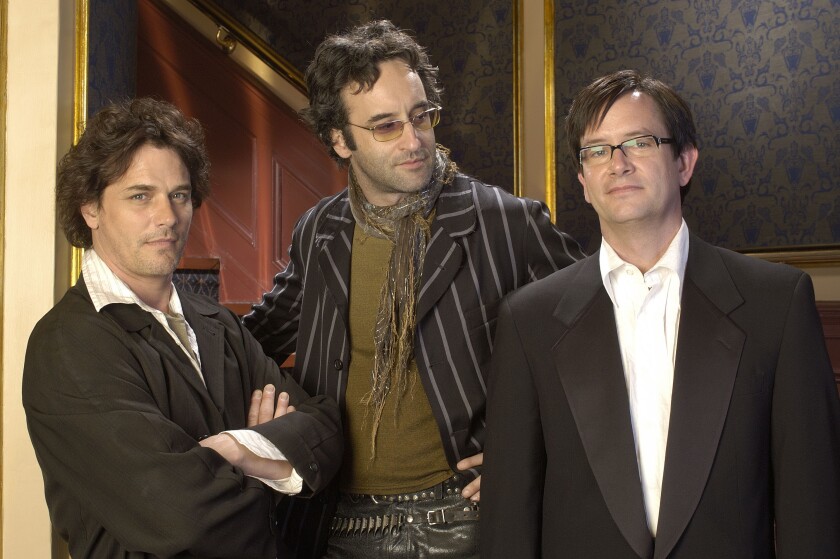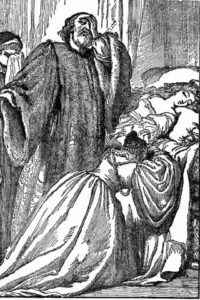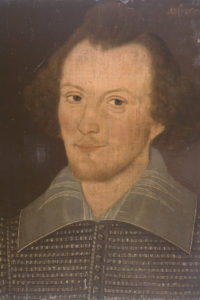
We don’t often pay attention to the very opening of King Lear. The “good stuff” starts with Lear dividing up his kingdom between his daughters, and that hasn’t happened yet. All we really get is Gloucester introducing Edmund to Kent.
But I was in that part of the text again today and man, Gloucester, not really cool!
KENT
Is not this your son, my lord?GLOUCESTER
His breeding, sir, hath been at my charge: I have
so often blushed to acknowledge him, that now I am
brazed to it.
So right off the bat, “I’m embarrassed to admit this is my son.” Lovely. It gets worse.
KENT
I cannot conceive you.GLOUCESTER
Sir, this young fellow’s mother could: whereupon
she grew round-wombed, and had, indeed, sir, a son
for her cradle ere she had a husband for her bed.
Do you smell a fault?
“Son, just sit there quietly while I explain to the nice man that your mother was a whore.”
KENT
I cannot wish the fault undone, the issue of it
being so proper.
Kent, for his part, is trying to make the best of the awkward situation. “Regardless of how he came into the world, that’s a fine looking boy you’ve got there!”
GLOUCESTER
But I have, sir, a son by order of law, some year
elder than this, who yet is no dearer in my account:
though this knave came something saucily into the
world before he was sent for, yet was his mother
fair; there was good sport at his making, and the
whoreson must be acknowledged. Do you know this
noble gentleman, Edmund?
Emphasis mine of course, but what son doesn’t love to hear “Well, at least his mom was hot, and great in bed.” Sure Edmund’s the villain of this story but you pay close attention to a scene like this and think, can you blame him?
I never really noticed the line above about how he holds his other, lawful son (Edgar) “no dearer in my account”. Does Gloucester have a problem with Edgar right from the start, that is then what Edmund feeds on to set his plan in motion? Man, Shakespeare thought of everything!


 Here’s a simple game. Pick a play. Now pretend you’re doing a production where the gimmick is that it’s told from a different character’s point of view than normal. Which play do you pick, which character and how does the play change?
Here’s a simple game. Pick a play. Now pretend you’re doing a production where the gimmick is that it’s told from a different character’s point of view than normal. Which play do you pick, which character and how does the play change? Or so Sir Anthony Sher and Professor Sir Jonathan Bate would suggest,
Or so Sir Anthony Sher and Professor Sir Jonathan Bate would suggest,